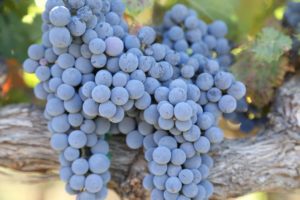
 The North American wine market is a growing industry. The industry is expected to reach $145 billion by 2026, making up nearly one-fourth of global sales. Social media, the COVID pandemic, and the shift to online sales have transformed the sector. While some wineries struggled as in-person sales tactics like tastings and wine tours were impacted, many others successfully pivoted to virtual environments.
The North American wine market is a growing industry. The industry is expected to reach $145 billion by 2026, making up nearly one-fourth of global sales. Social media, the COVID pandemic, and the shift to online sales have transformed the sector. While some wineries struggled as in-person sales tactics like tastings and wine tours were impacted, many others successfully pivoted to virtual environments.
Relatedly, online sales have increased the consumer base as well as potential competitors. To thrive in this hyper-competitive, web-based environment, winemakers and wineries must update their marketing and advertising strategies.
Influencer Marketing
Influencers are individuals who have cultivated authority within a niche through their social media content. This type of marketing was driven by the demand for relatable, consumer-centered advertising. Rather than borrowing from the caché of celebrities or models, brands can better reach their target customers by partnering with the right influencers.
Influencer marketing can take many forms. For example, many influencers create sponsored content that incorporates the wine product into their social media posts or videos. Sponsored content works best when the influencer’s brand and content style align with the winery’s branding.
However, this doesn’t mean that winemakers are limited to working with wine-focused influencers. As wine products relate to many other topics, including lifestyle, cooking, entertaining, and agriculture, wineries can find suitable influencers in any number of fields.
Since wine tours are also an essential aspect of local tourism promotion, travel influencers can also be a great avenue for exposure. Wineries may offer free tours and accommodation in exchange to be prominently featured in the influencer’s content. This can quickly drum up business as the influencer’s audience will be inspired to plan their own trips.
Associations
Many of the most notable names in wine have centuries of history contributing to their prestige. For this reason, it can be difficult for new winemakers to appear on the industry’s radar. This is especially true for emerging wine regions established in the past few decades.
Many winemakers in these circumstances form associations to promote their region and wine products. While many of these groups are based around a specific location, winemakers also create associations focused on wine types, wine-making techniques, and agricultural practices. For example, organic wine associations establish and uphold standards for producing natural wines.
Associations enable winemakers to combine their resources to launch larger promotion strategies, such as expositions. Associations can also raise the profile of all member winemakers by hosting large tasting events or fairs that attract wine connoisseurs and consumers from across the country. Many also publish their own industry magazines and advocate for policies that improve circumstances for winemakers.
To fund these endeavors, association members must pay a monthly or annual fee. Since many associations are also nonprofits, their work can be sponsored by private companies and local governments.
Delivery Services
Traditionally, wine experiences have been limited to on-site tours and tastings. While this appealed to the most engaged wine consumers, it is very difficult for winemakers to scale this type of product. However, when COVID-19 public health orders prevented travel, winemakers had to find innovative ways to adapt their in-person offerings to a virtual setting.
In the wake of the pandemic, wine delivery sales surged. Many winemakers opened eCommerce stores to sell and ship their products to consumers nationwide. Home-delivered wine tasting kits allowed customers to replicate the wine tour experience at home. Mobile wine rooms also gained popularity.
By making the wine tasting experience mobile, winemakers could make their products accessible to a larger consumer base. A custom Ford, Toyota, or Chevy vehicle wrap designed with the winery’s logo and signature colors can transform a regular delivery car into a branded wine experience. Mobile wine trucks, similar to food trucks, give the opportunity to sell products while advertising the winery.
Venue Rentals
Winemakers have always been able to take advantage of the picturesque scenery of vineyards on rolling hills to attract tourists for a wine tour or tasting. However, there are many other customer segments that seek out beautiful surroundings.
For example, contemporary wedding trends have increased the demand for less conventional outdoor venues, such as vineyards. Large companies are also interested in hosting events in outdoor spaces to reflect values such as environmentalism.
Event hosting brings the winery and its products to the attention of dozens of consumers at once, increasing the chances of word-of-mouth referrals and returning visitors. As many wineries do not have the infrastructure to host large groups of people, winemakers can cross-promote with local hotels and restaurants to offer inclusive venue packages.
